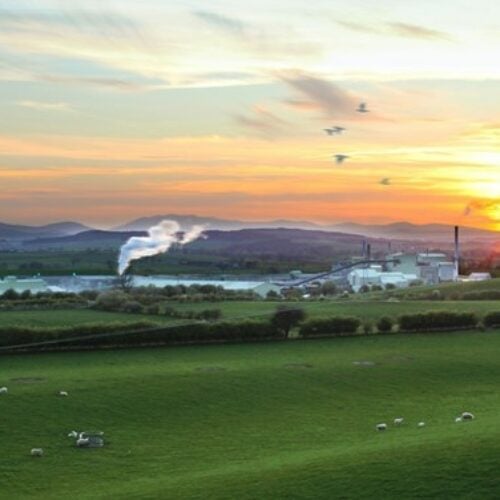A project that will see over 10,000 new homes heated by waste heat from nearby data centres has been granted a share of £65 million funding from the Green Heat Network Fund.
Run by Old Park Royal Development Corporation (OPDC), the project received £36 million to build a heat network which uses waste heat from data centres to heat over 10,000 homes as well as 250,000m2 of commercial space in the London Boroughs of Ealing, Brent and, Hammersmith and Fulham.
“Recycling the huge amounts of wasted heat from our local data centres into heat and energy for local residents, a major hospital and other users is an exciting and innovative example of OPDC’s support for the mayor’s net zero ambitions,” said David Lunts, chief executive of the OPDC.
“We are excited to be leading the way in developing low carbon infrastructure, supporting current and future generations of Londoners in Old Oak and Park Royal to live more sustainably.”
Later this week, Current± will publish an interview with the OPDC, providing an in-depth analysis of the data heat project.
The data heat project was one of five green heat projects that received a share of the £65 million. The other successful projects were:
- A heat pump housing estate in Chilton Woods Suffolk, which received £745,000 to help low-carbon heating to almost a thousand homes and as primary school. The project also includes a thermal store, meaning excess energy can be fed back to the grid.
- South Kilburn District Heat Network will receive £5.2 million, to supply heat to 34 sites through air source heat pumps (ASHP) combined with back up gas boilers. The heat will be transported to 2,900 customers via 2.79km pipe network.
- Watford Community Housing will receive £1.8 million funding to replace old gas district heating system with ground source and air source heat pumps, which will heat 252 apartments across six blocks.
- Lancaster University is set to receive over £21 million to completely decarbonise its campus with a low carbon energy centre, consisting of ASHP, thermal storage and electrical infrastructure works.
“Heat decarbonisation in buildings is a huge challenge, and one that is often fundamentally misunderstood – heat networks are the only internationally proven route for decarbonising heat at scale, yet most people don’t know what they are,” said Matthew Basnett, heat network policy lead at the Association for Decentralised Energy’s (ADE).
“We are excited to see that another round of the Green Heat Network Fund has been successful, and celebrate the news that a first-in-the-UK development will use waste heat from data centres to keep more than 10,000 homes warm, comfortable and affordable in the long-term. We now look forward to seeing government work with industry to raise the profile of heat networks as a versatile solution for heat decarbonisation.”





